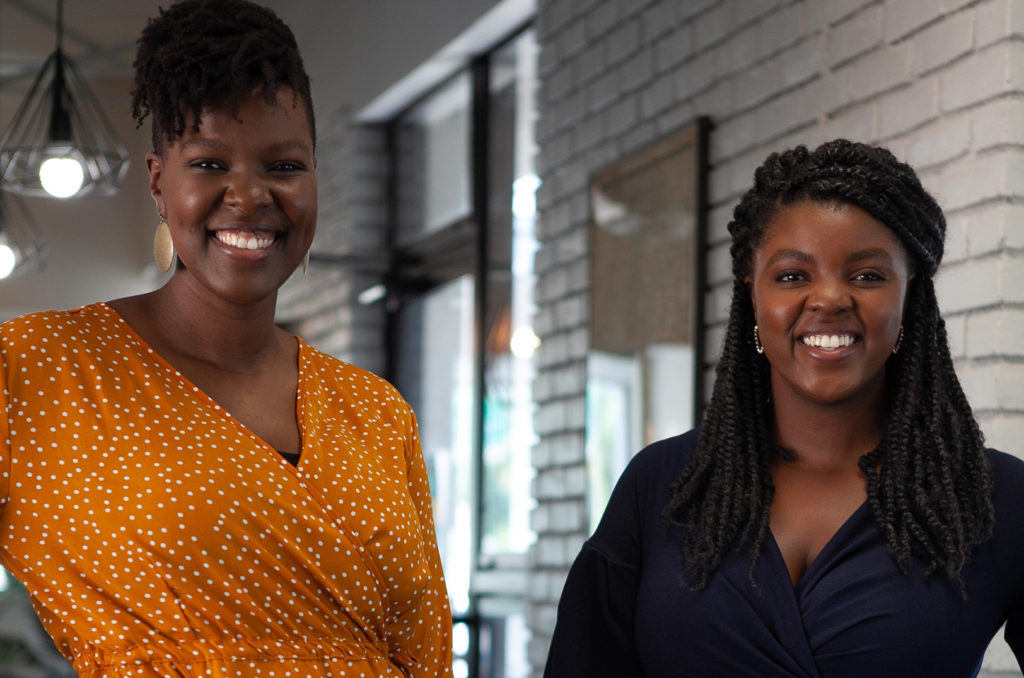Kansas will use a recent influx of federal funding to strengthen the state’s small business and venture capital ecosystems, according to project leaders of a new high-profile effort focusing on equitable access.
The state was allocated $69 million earlier this year as part of the State Small Business Credit Initiative (SSBCI), a federal program that will provide a total of $10 billion to states, territories, and tribal governments to promote entrepreneurship, especially in traditionally underserved communities, according to the Department of Treasury.
All work through the SSBCI-infused GROWKS Loan Fund and Equity Programs recycle federal funding, with no additional state investment required, said Steve Radley, CEO of Network Kansas, which is administering the programs. The SSBCI dollars can be distributed over a period of nine years, although the funds should regenerate and become “evergreen,” he said.
“These loan programs can go on in perpetuity,” Radley said. “Done right, this program will still be operating well beyond when I am gone from Network Kansas. The whole key to this is sustainability, both on the loan side and the equity side.”
Network Kansas and the Kansas Department of Commerce will manage the newly-created loan fund and equity programs, which will use that federal funding to match private investment in Kansas small businesses.
The nonprofit organization previously worked with the state government to distribute $13 million to businesses across Kansas from the SSBCI funding allocation in 2010.
Additionally, a new multi-fund program will provide investment support to Kansas-based seed and early-stage venture funds.
Growing potential in the heartland
The GROWKS Loan Fund — which will distribute $42 million and comprises five separate programs — matches funding up to $100,000 for new and existing Kansas for-profit and non-profit small businesses (fewer than 500 employees) that have received financing from a bank or financial institution.
The initiative is designed to focus especially on businesses from underserved geographic areas, populations, and industries. This includes founders in rural and urban-distressed communities, as well as women and minority business owners, among other groups.
GROWKS was among the investors in the latest funding round for Wichita-based WorkTorch, a service industry career platform. Led by sisters Deborah Gladney and Angela Muhwezi-Hall, the company is the first Black women-run company in Kansas to raise $1 million in seed funding for their startup.
RELATED: New $2.2M funding round powers WorkTorch career platform expansion into KCK, KCMO
“The ability of these loan programs to match dollars to have greater impact for these founders who typically may not be as served across traditional lending products is quite necessary,” said Christina Long, strategic inclusive communications director at Network Kansas.
“There’s a saying that a rising tide lifts all boats, and it’s time — it’s absolutely time — that founders who typically don’t get served by traditional products have an opportunity to do so,” Long added.
WorkTorch co-founder Gladney said she initially had no idea just how meaningful and validating it would be for two Black women to build a company like theirs — and get funded.
“Like most founders, we didn’t focus so much on the barriers we were up against, we just focused on building a solution that we know needed to be in the market,” she said. “However, we quickly experienced the difficulty in getting from one milestone to another, more so than our counterparts.”
“That’s when we realized what we’re building is more than just a tech company. We’re building a new generation of tech founders,” Gladney continued. “We are hoping that more founders who identify with us — minorities, women, mothers, etc. — will be encouraged to build companies. There are so many billion dollar ideas out there waiting to be birthed. It’s our hope we can play a role in breaking down some of the systemic barriers that exist so that these ideas can be pursued — especially by underrepresented founders.”
Dollars out, diversity in
One requirement that’s noticeably absent from the Loan Fund is a minimum investment amount, which was not the case for the initial round of SSBCI funding in 2010.
Imagene Harris, vice president of impact investment services at Network Kansas, said that might be the “most important” difference in terms of increasing equitable access.
“While we got the dollars out, and while we were recycling the dollars before the end of the program — I mean it was working — but when we look back at it, it was only working for certain sizes of projects or certain types of entrepreneurs,” Harris said. “So this was our way of saying, “OK, that needs to be more diverse this time around.’”
Harris added that Network Kansas will lean on its E-Community (short for entrepreneurship community) partners throughout the state to identify, educate, and evaluate founders and business owners who would be a good fit for the programs.
“We want to make sure we’re really maximizing our built network,” Harris said. “They’re on the ground. They’re already working with these entrepreneurs.”
“We can not only educate them about these programs better and how they can access them, but for a subset of them who we’re calling our authorized E-communities, they can actually make decisions on two of these program options at the local level,” Harris added.
Click here for a complete list of programs, eligibility requirements, applications, FAQs, loan terms, and approved uses of funding for the GROWKS Loan Fund programs.
Angel capital support
Responsible for the remaining $27 million, the GROWKS Equity Programs provide financing to Kansas businesses backed by venture capital, as opposed to financial institutions.
The largest of the three equity programs, the Angel Capital Support Program is open to for-profit small businesses that provide civic and/or economic benefits to the community and have received private investment.
Originally established as part of the Small Business Jobs Act of 2010 under the Obama Administration, the SSBCI is intended to provide public funds to leverage private-sector lending and equity investment into small businesses. The initiative was reauthorized and expanded as part of the American Rescue Plan Act, President Biden’s $1.9 trillion stimulus package, which passed Congress in March 2021 along party lines.
U.S. Rep. Sharice Davids, D-Kansas, a member of the House Small Business Committee, and U.S. Reps. Cori Bush and Emanuel Cleaver, D-Missouri, supported and voted for the American Rescue Plan. All Republican members of both the Missouri and Kansas Congressional delegations in the U.S. House and U.S. Senate voted against the $1.9 trillion stimulus package.
It builds upon a similar program that Network Kansas used during the first SSBCI funding wave years ago, said Trish Brasted, president of Entrepreneurial Growth Ventures, a division of Network Kansas.
“We knew we wanted to do that program again with similar parameters, but with some more intentionality around diversity and inclusion,” Brasted said.
The Angel Capital Support Program will distribute about $18 million dollars, Brasted said, noting that outside capital — including dollars from other states — will also be raised to provide more funding to Kansas VC-backed companies.
According to Brasted, the Network Kansas team leveraged $5.6 million in federal funding from the previous SSBCI round with an additional $123 million in outside capital.
She added that the increased federal allocation money will allow for multiple rounds of funding this time around. The minimum matching investment is $50,000, and the maximum for first-round investment is $250,000. The cap for second-round investment is $100,000.
Click here for more information about the Angel Capital Support Program.
The second program on the equity side is the multi-fund program, which will offer investment support up to $2 million to early-stage venture funds headquartered in Kansas.
Brasted hopes this new fund will jumpstart the venture capital environment in Kansas, which she said lags near the bottom nationally.
“We thought this was an opportunity to allocate a little bit of money to help foster and grow that ecosystem,” Brasted said. “We also want to be intentional there, too, by supporting some first-time managers, and some female and minority managers, and give them an opportunity.”
That opportunity could extend to people who have interacted with the venture capital arena in a variety of ways, Brasted said, especially if they’re willing to stick with it.
“What we’re looking for is folks who want to be in the venture industry, who’ve got ecosystem experience, who maybe have been part of a fund or part of an organization that supports entrepreneurs, but want to be in the venture game, and that will not only raise one fund but will raise a second, and a third, and a fourth fund if they’re successful,” Brasted said.
Click here for a complete list of eligibility criteria for the multi-fund program.
Brasted also teased the eventual launch of a program currently in the design phase that will be centered around community angel support. The GROWKS team plans to partner with community organizations across Kansas to encourage impact investment into local projects.
Empowering at the local level
In the broader picture, Radley believes that SSBCI funding will be an invaluable tool in furthering his nonprofit’s mission of empowering Kansas communities at the local level.
“We have a philosophy at Network Kansas that every business matters, and we’ve had that philosophy from Day 1,” Radley said. “There is no such thing as a primary job and secondary job in our philosophy. Every job matters. Every business matters. And that’s driven locally.”
Radley said that’s why partnering with and lifting up people and organizations in every community matters — and why it succeeds.
“If you really want to empower at the local level, you put your money where your mouth is, and you allow them to make decisions even though it’s your money,” he said. “We’ve been doing that for 17 years now, and it works, and it empowers communities.”
This story is possible thanks to support from the Ewing Marion Kauffman Foundation, a private, nonpartisan foundation that works together with communities in education and entrepreneurship to create uncommon solutions and empower people to shape their futures and be successful.
For more information, visit www.kauffman.org and connect at www.twitter.com/kauffmanfdn and www.facebook.com/kauffmanfdn









































